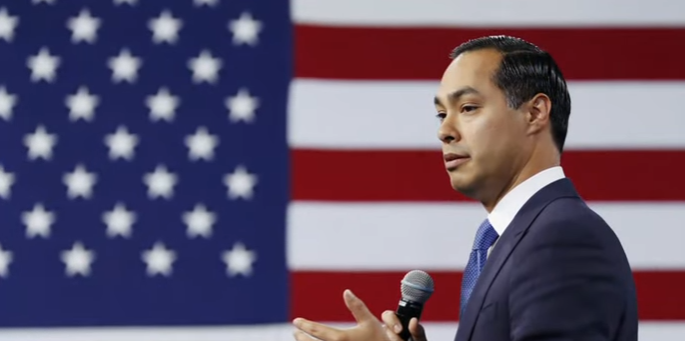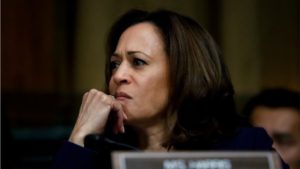By Jim Ellis

Hillary Clinton
— The Harris polling organization in conjunction with Harvard University has just released what appears to be the first national poll to include former secretary of state and 2016 presidential nominee Hillary Clinton, and it finds her pulling into a small lead when tested against the rest of the Democratic field.
Looking at the large sample survey (Nov. 27-29; 1,859 registered voters — 756 Democratic registered voters, online), Hillary would take a 21-20-12-9-5 percent lead over former Vice President Joe Biden, Sens. Bernie Sanders and Elizabeth Warren, and South Bend Mayor Pete Buttigieg.
Without Hillary included, the field breaks 29-16-13-8-7 percent in favor of Biden, Sens. Sanders and Warren, Mayor Buttigieg, and former New York City mayor Michael Bloomberg, respectively.
There are negatives associated with the methodology, however. First, an online poll is less reliable than a live-interview survey, and generally even less so than an automated response device study.
Additionally, the Harris/Harvard poll was taken during the Thanksgiving holiday weekend, which again potentially skews the sample because so many people would not be included in the sampling universe because of deviations from their normal routines.
Third, the survey included former secretary of state and ex-US senator John Kerry within the field of candidates, and he received five percent support. That, too, could certainly skew the overall results to a degree because he is not running in the 2020 campaign.
Negatives notwithstanding, the fact that Clinton would already land among the leaders in the first of what will likely be several credible national surveys is significant. If anything, this data will lend more fuel to the fire that the former presidential nominee, secretary of state, US senator, and First Lady is seriously considering becoming a national candidate in 2020.
The Harris/Harvard poll again reiterates the most recent polling trend that, without Hillary being tested, Biden is establishing a clear lead but is nowhere close to the necessary 50 percent mark in order to secure nomination. The latest data also confirms that Sen. Warren dropped back into the pack after moving into a virtual tie with Biden six to 10 weeks ago. Sen. Sanders maintains his consistent supporters and is clearly going to be a top-tier factor as the race moves forward.
The candidates appearing to suffer the most from a Clinton re-emergence are Sen. Warren and Mayor Buttigieg. They both drop back significantly with her in the race, each falling into single digits. Biden and Sanders appear to hold most of their strength even with her in the field, which tells us that Warren and Buttigieg’s joint prospects will suffer if she were to return to active candidate status.
Continue reading →


 Dec. 20, 2019 — As the most recent polling from national research sources and in key states shows President Trump gaining political strength, the US House last night, on a virtual party line vote, approved the resolution to send the Articles of Impeachment to the US Senate for trial.
Dec. 20, 2019 — As the most recent polling from national research sources and in key states shows President Trump gaining political strength, the US House last night, on a virtual party line vote, approved the resolution to send the Articles of Impeachment to the US Senate for trial. 



